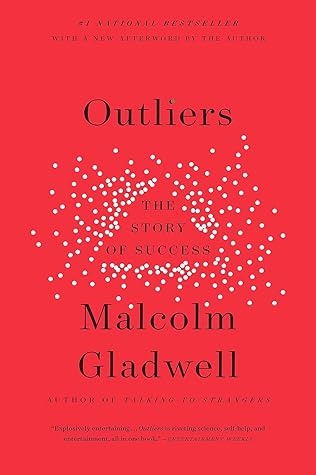More on this book
Community
Kindle Notes & Highlights
If you were a peasant farmer in Southern China, by contrast, you didn’t sleep through the winter. In the short break marked by the dry season, from November through February, you busied yourself with side tasks. You made bamboo baskets or hats and sold them in the market. You repaired the dikes in your rice paddy, and rebuilt your mud hut. You sent one of your sons to work in a nearby village for a relative. You made tofu and dried bean curd and caught snakes (they were a delicacy) and trapped insects. By the time lahp cheun (the “turning of the spring”) came, you were back in the fields at
...more
But a belief in work ought to be a thing of beauty. Virtually every success story we’ve seen in this book so far involves someone or some group working harder than their peers. Bill Gates was addicted to his computer as a child. So was Bill Joy. The Beatles put in thousands of hours of practice in Hamburg. Joe Flom ground away for years, perfecting the art of takeovers, before he got his chance. Working really hard is what successful people do, and the genius of the culture formed in the rice paddies is that hard work gave those in the fields a way to find meaning in the midst of great
...more
Success is a function of persistence and doggedness and the willingness to work hard for twenty-two minutes to make sense of something that most people would give up on after thirty seconds.
We should be able to predict which countries are best at math simply by looking at which national cultures place the highest emphasis on effort and hard work. So, which places are at the top of both lists? The answer shouldn’t surprise you: Singapore, South Korea, China (Taiwan), Hong Kong, and Japan. What those five have in common, of course, is that they are all cultures shaped by the tradition of wet-rice agriculture and meaningful work.* They are the kinds of places where, for hundreds of years, penniless peasants, slaving away in the rice paddies three thousand hours a year, said things
...more
Next, let’s see what happens if we look just at how reading scores change during summer vacation. Class After 1st After 2nd After 3rd After 4th Total Low –3.67 –1.70 2.74 2.89 0.26 Middle –3.11 4.18 3.68 2.34 7.09 High 15.38 9.22 14.51 13.38 52.49 Do you see the difference? Look at the first column, which measures what happens over the summer after first grade. The wealthiest kids come back in September and their reading scores have jumped more than 15 points. The poorest kids come back from the holidays and their reading scores have dropped almost 4 points. Poor kids may out-learn rich kids
...more
Suddenly the causes of Asian math superiority become even more obvious. Students in Asian schools don’t have long summer vacations. Why would they? Cultures that believe that the route to success lies in rising before dawn 360 days a year are scarcely going to give their children three straight months off in the summer. The school year in the United States is, on average, 180 days long. The South Korean school year is 220 days long. The Japanese school year is 243 days long.
Outliers are those who have been given opportunities—and who have had the strength and presence of mind to seize them.
Malcolm Gladwell argues that there’s no such thing as a self-made man and that super achievers are successful because of their circumstances, their families, and their appetite for hard work. How is this view different from the way you have thought about and understood success in the past?


